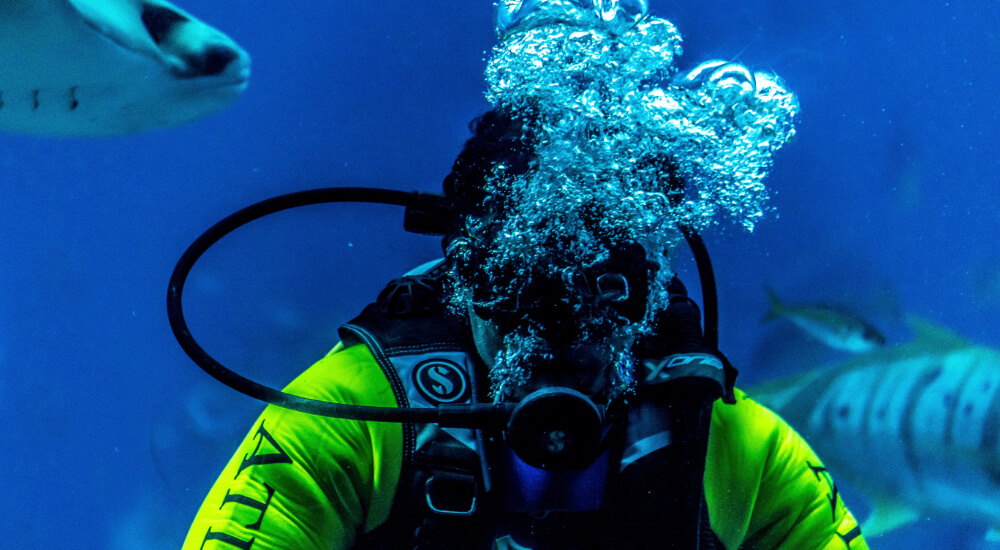The travel and leisure industry has been hit hard these past few months following the outbreak of the novel coronavirus (COVID-19), which has had disruptive effects on economies worldwide. The diving community has not been spared either. Recently, the Divers Alert Network (DAN) and several major diving organizations such as PADI and SDI have taken to the internet to discuss the issue, including the health and safety precaution measures one needs to take during this period.
For official information on how to prevent this infectious disease, follow the recommendations provided by the World Health Organization and your national and local authorities. If you are considering booking a trip during the coronavirus outbreak, consult current travel advisories issued by your country to get informed on the risks associated with travel to specific destinations.
Disinfecting Your Dive Gear
Diving equipment should always be effectively sanitized by divers and dive operators, but with the recent outbreak of the new coronavirus, it has become especially important to follow the necessary steps to cleaning your dive gear. It’s important to note that not all products previously used to clean dive gear will be effective at fighting against coronavirus.
The best way to sanitize dive equipment is by submerging it in a 10% bleach solution or using a quaternary ammonium compound. A solution of 1% aqueous solution of sodium hypochlorite (bleach) with an application time of over 15 minutes can also be used.
A list of products that can be used by business owners and the public for use against COVID-19 has also been compiled by the American Chemistry Council’s Center for Biocide Chemistries.
As per DAN recommendations, divers using rental gear can take extra precaution steps by wiping their regulator mouthpiece, snorkel, BCD oral inflator, and the inside of their mask with a household disinfecting wipe and then rinse the objects thoroughly with fresh water. For further information, you may want to check PADI’s health and safety recommendations and precautions.
But Don’t Forget about the Basic Coronavirus Protective Measures
The World Health Organization, a specialized agency of the United Nations that monitors the spread of the virus, has published information on how to protect yourself and others from the virus. These actions include:
- Washing your hands frequently
- Maintaining social distancing
- Avoiding touching your eyes, nose, and mouth
- Practicing respiratory hygiene
- Seeking medical help if you feel unwell (but call first)
Should You Be Traveling During this Period?
At the beginning of March 2020, an entire luxury resort in the Maldives has been placed under quarantine, with tourists and staff members temporarily restricted from leaving the premises. This occurred after one employee of the resort tested positive for COVID-19. While we can agree being quarantined on an island in the Maldives doesn’t sound half bad, this remains a situation to be avoided.
To minimize the risk of getting infected with the novel coronavirus, it is recommended to avoid all non-essential travel to countries where the outbreak has begun. Many countries have already imposed travel bans and restrictions, and many others will most likely follow. At the same time, many commercial airlines have halted some or all flights to specific destinations.
Furthermore, individuals who travel from countries with an outbreak of coronavirus may be placed under quarantine for up to 14 days upon entry to their country of destination. One should also be prepared for delays and screening at airports or other points of entry.
For an updated list of countries where the new coronavirus has spread, you may access Worldometer. As of today, March 17, 2020, about 162 countries and territories worldwide have reported confirmed cases of COVID-19. The US State Department and other nations worldwide, advises citizens to reconsider travel abroad due to the global impact of the virus.
Be aware of the virus and steer clear of heavily impacted areas. General recommendations for food hygiene, personal hygiene, respiratory hygiene etiquette, and keeping a safe distance from other people showing symptoms (cough, fever, shortness of breath) remain particularly important for all travelers.

Fırat ÇELİK says:
I’ve read the DAN’s report. As an instructor, I hope I do not encounter such a disease 🙁